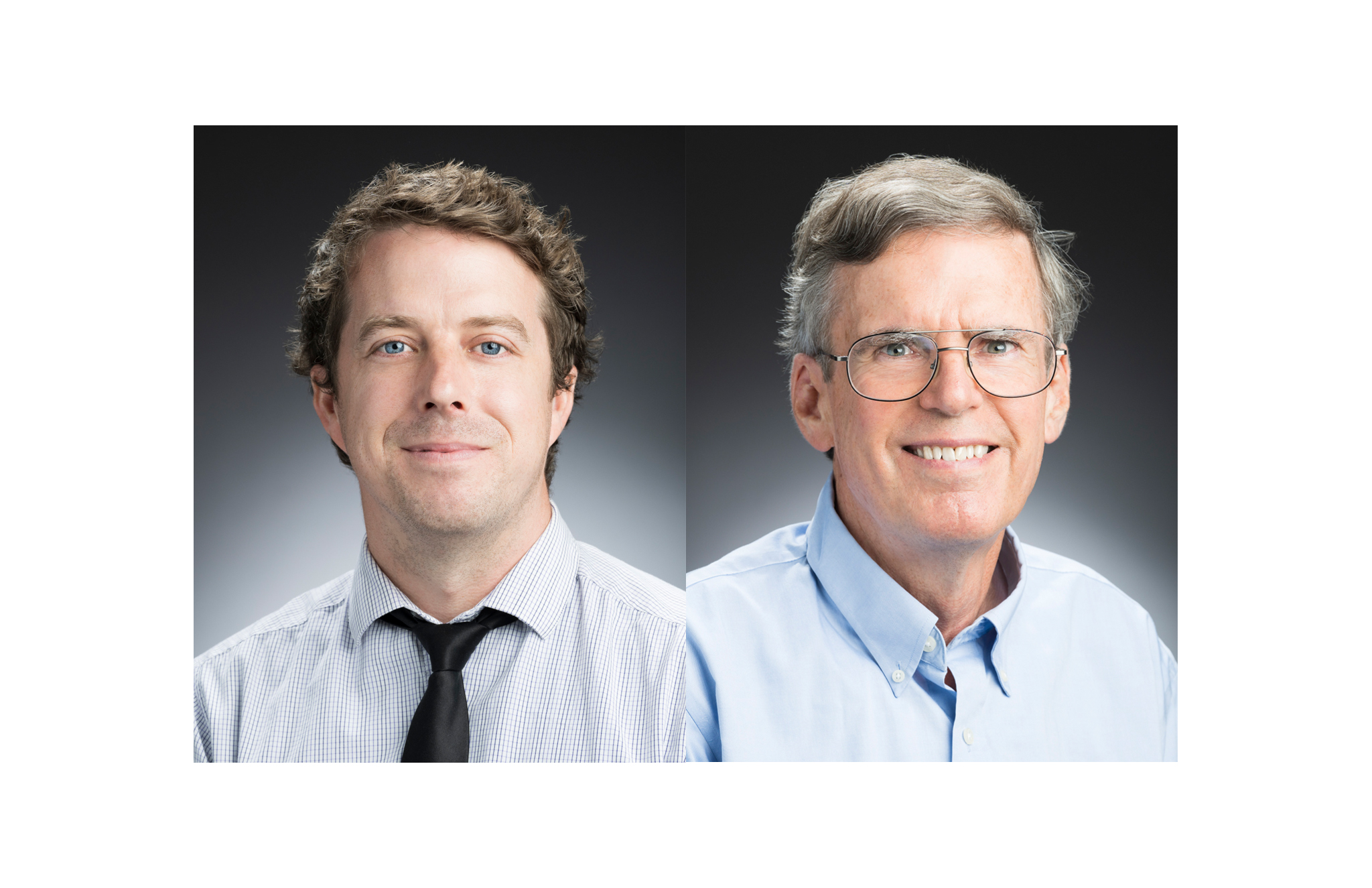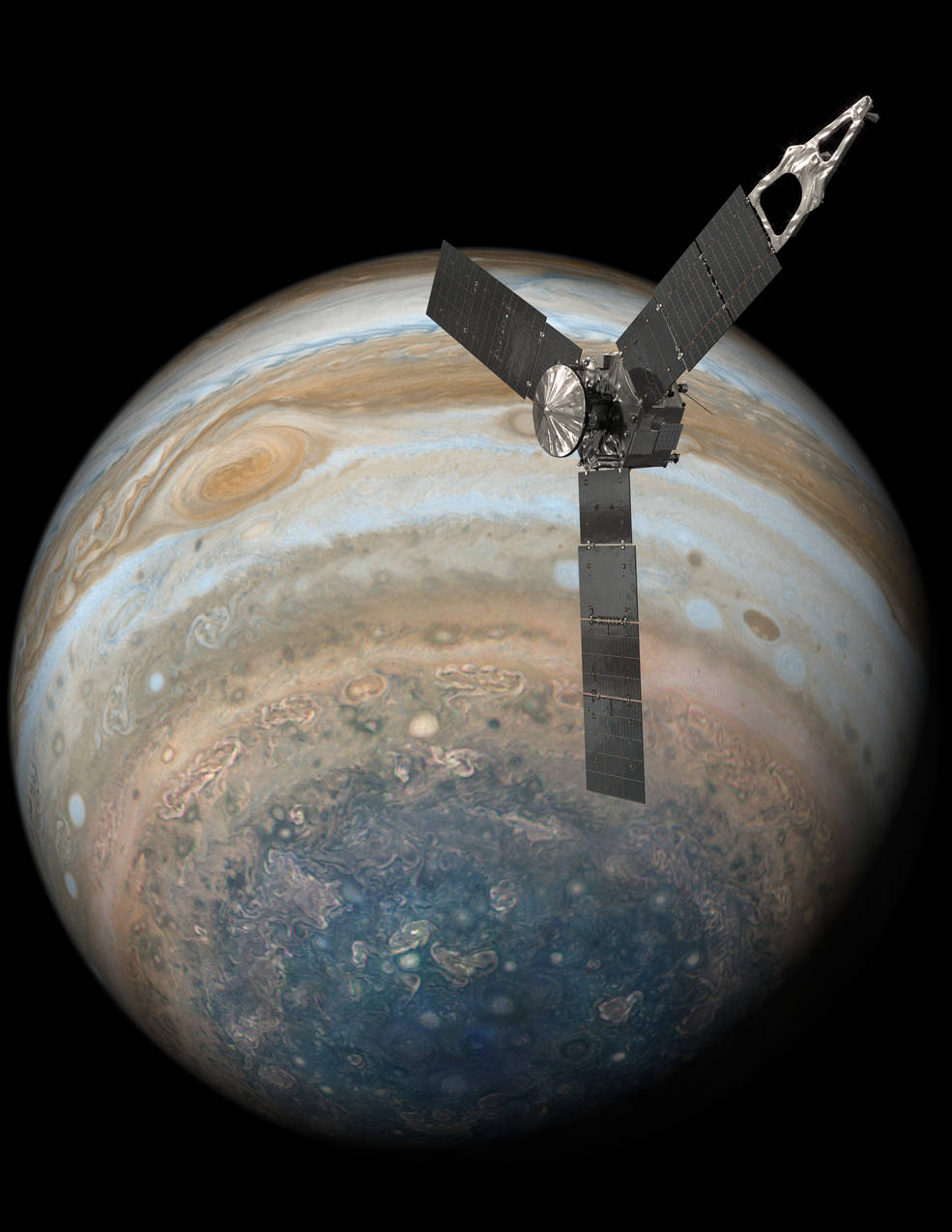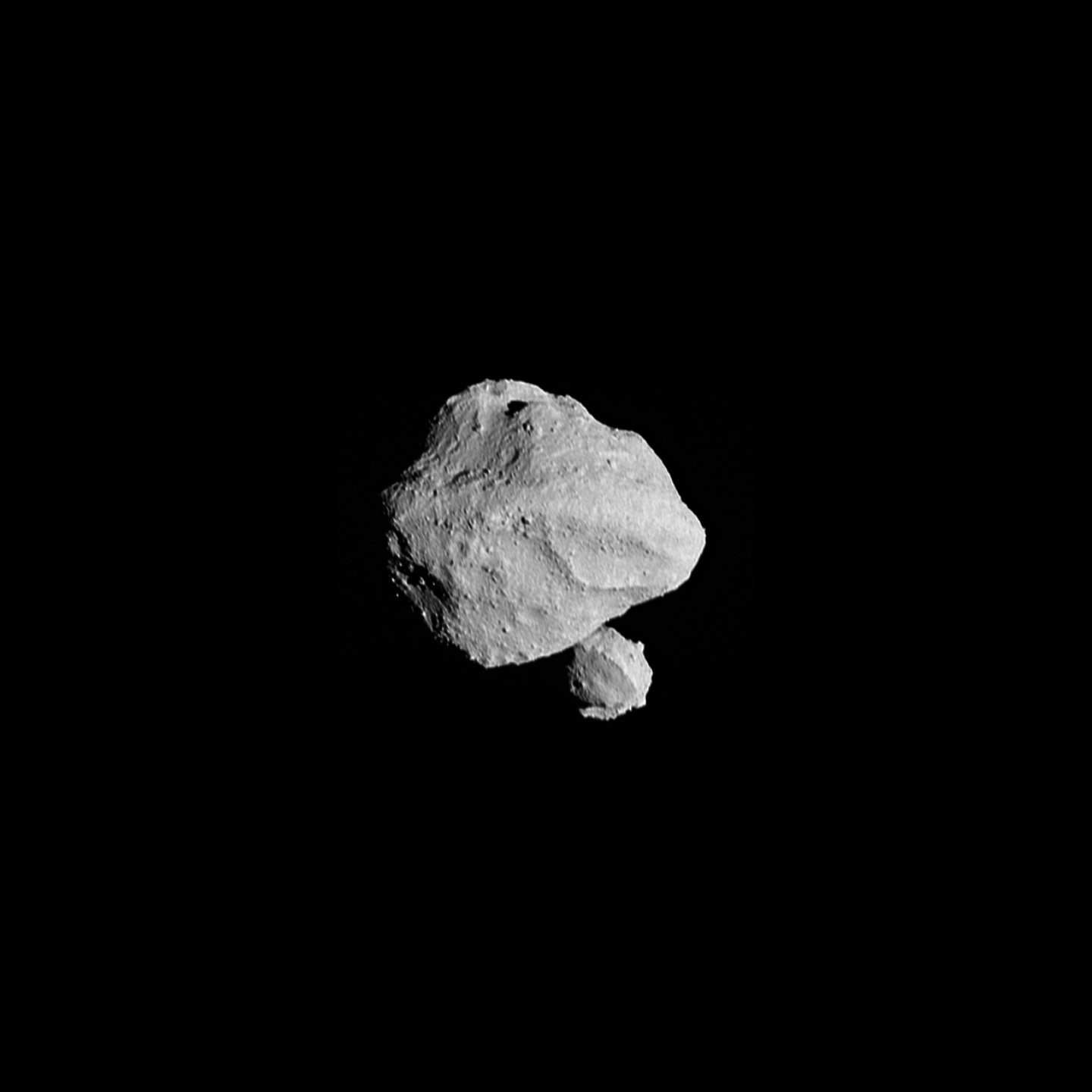
Two researchers from the Johns Hopkins Applied Physics Laboratory (APL) in Laurel, Maryland, recently earned prestigious NASA Honor Awards. APL space physicists George Clark and Barry Mauk, as well as dozens of other awardees, were honored for their distinguished contributions to NASA’s Juno mission to Jupiter.
An expert in the physics of magnetospheric and auroral phenomena, Clark received an Early Career Achievement Medal for his significant contribution to analyzing and interpreting scientific data returned from the APL-built and -operated Jupiter Energetic-Particle Detector Instrument (JEDI) aboard Juno. Clark, who’s just 10 years out of graduate school, said the announcement came as a bit of a shock.

“I never really consider my work to be all that impactful and am a terrible self-promoter,” he said. “I still had feelings of joy because it’s always nice to receive some recognition.”
Clark and his wife quietly celebrated at home with a bottle of wine. Others, however, haven’t been as restrained about his accomplishments. As a Juno mission science team member since starting graduate school in 2009, Clark has garnered several accolades for his meticulous and ingenious analyses of Juno and JEDI data. Notable among them was his 2017 paper on the discovery of megavolt potentials around Jupiter’s poles — a finding that marks the highest electrostatic potentials ever discovered directly by a space mission and helps explain some of the intense particle accelerations seen around Jupiter.
“Those efforts and results were completely outside of the expertise of George’s mentors,” said Mauk, who was one of those mentors. “That’s part of what is most impressive about George: his depth of thinking and the breadth of his activities. He’s dug deeply into the complicated working of the JEDI instrumentation to understand well how the instrument was responding to Jupiter’s very difficult environment, and he has always voluntarily stepped forward to help his JEDI and Juno colleagues.”
“I consider Juno as my scientific identity,” Clark added. “I owe much of my success to the mentors, colleagues and friends I’ve made on Juno and JEDI, particularly Barry Mauk and Frederic Allegrini at the Southwest Research Institute. I wouldn’t be in this position without their scientific guidance and career advice.”
Mauk, who has been at APL since 1982, received NASA’s Exceptional Public Service Medal, particularly for his leadership on the Juno Magnetosphere Working Group and JEDI, and for helping researchers better understand Jupiter’s aurora and polar magnetosphere. He has focused his career on the physics of the outer planets of the solar system, with involvement on NASA’s Voyager, Galileo and Cassini missions. Mauk’s numerous discoveries include uncovering the different mechanisms by which Earth’s and Jupiter’s auroras form and discovering key characteristics that distinguish the processes controlling a magnetic planet’s radiation belts.
“I feel similar level of excitement about Juno as I did when I was a new member of the Voyager team as it encountered the planet Uranus, never before visited,” Mauk said. “Juno is visiting a novel portion of Jupiter that has never before been visited and will likely not be visited again in the lifetimes of even the youngest scientists today.”
The awards were presented during the annual NASA Honor Awards ceremony in August at the Jet Propulsion Laboratory in Pasadena, California.
To learn more about the Juno mission and APL’s JEDI instrument onboard, visit the Juno mission website.
Related Topics
Science
For Media Inquiries
For all media inquiries, including permission to use images or video in our gallery, please contact:
Michael Buckley
All Media Resources

